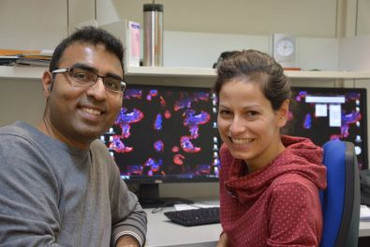CRU 5002: The interdisciplinary team introduces itself

In CRU 5002 we explore the mechanistic, functional and therapeutic implications of subtype-dependent genome dynamic alterations for pancreatic cancer progression and therapy resistance. Our consortium aims to elucidate molecular mechanisms that determine highly clinically relevant problems and to identify therapeutic strategies that improve pancreatic cancer treatment. The wide scientific spectrum of our initiative – from basic molecular studies to patient care – requires a broad range of expertise, both on the conceptual and methodical level. For instance, the performance of mechanistic, functional and therapeutic studies in molecularly characterized translational PDAC models would not be feasible without the contribution of experienced surgeons and pathologists who provide high quality pancreatic cancer material for the generation of PDX- and organoid models. Experts in human genetics and biomedical informatics conduct and analyze panel- and genome-wide sequencing studies required for performing pancreatic cancer subtyping. The joint use of the huge amount of experimental and clinical data produced by all members of the CRU represents a unique source of synergy for the consortium. However, this is also challenging, e.g. considering data storage capacities, ethical regulations and findability of data.
To this end, the Medical Informatics Core of the CRU develops and provides IT structures and pipelines to store, exchange, and integrate the large amount of genomic, phenotypic and functional data generated in the consortium. The basic research studies performed in SP1-7 represent the backbone of the scientific efforts in our CRU and require technical and conceptual know-how about molecular and cellular biology, histology, and biochemistry. The composition of our consortium reflects this requirement and includes basic researchers with scientific interest in genome dynamics and pancreatic cancer biology. However, these studies also critically depend on the input of clinicians with daily involvement in pancreatic cancer patient care who can judge on the clinical relevance of these basic research studies and provide advice that helps increase the translational potential of our work.
Since its start in September 2020, the CRU has enrolled numerous people of different professions (e.g. technicians, scientists, clinicians or scientific coordinator) who support the consortium with their individual expertise. Importantly, the CRU 5002 members comprise all levels of education and profession, from undergraduate students of medical or biological background, to PhD-students and postdocs, to established group leaders and professors. Altogether, the CRU team currently consists of 51 people. We are convinced that the interdisciplinary setup of the CRU 5002 is both a necessity and a strength of our consortium and will contribute to the success of our scientific path.
You may also be interested in